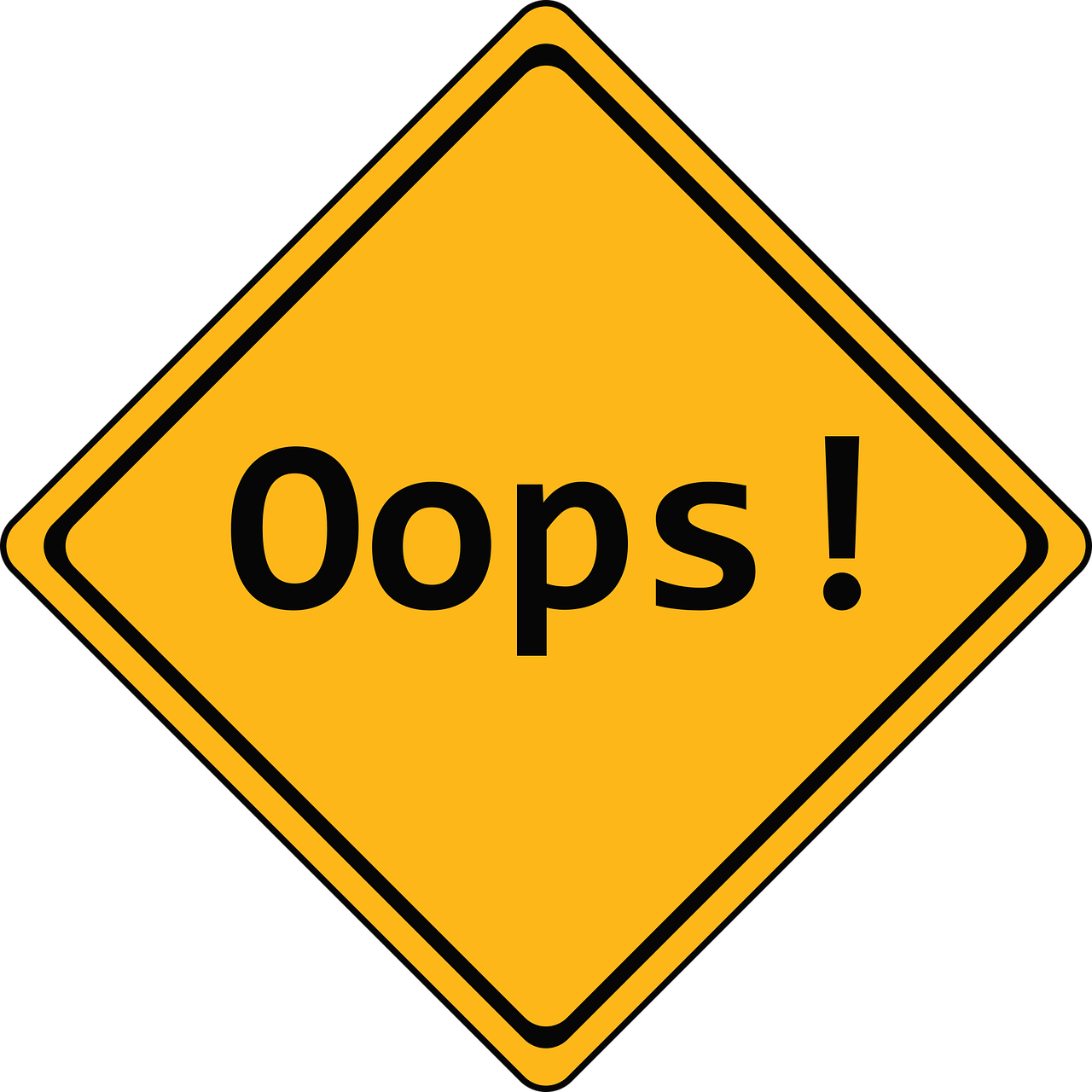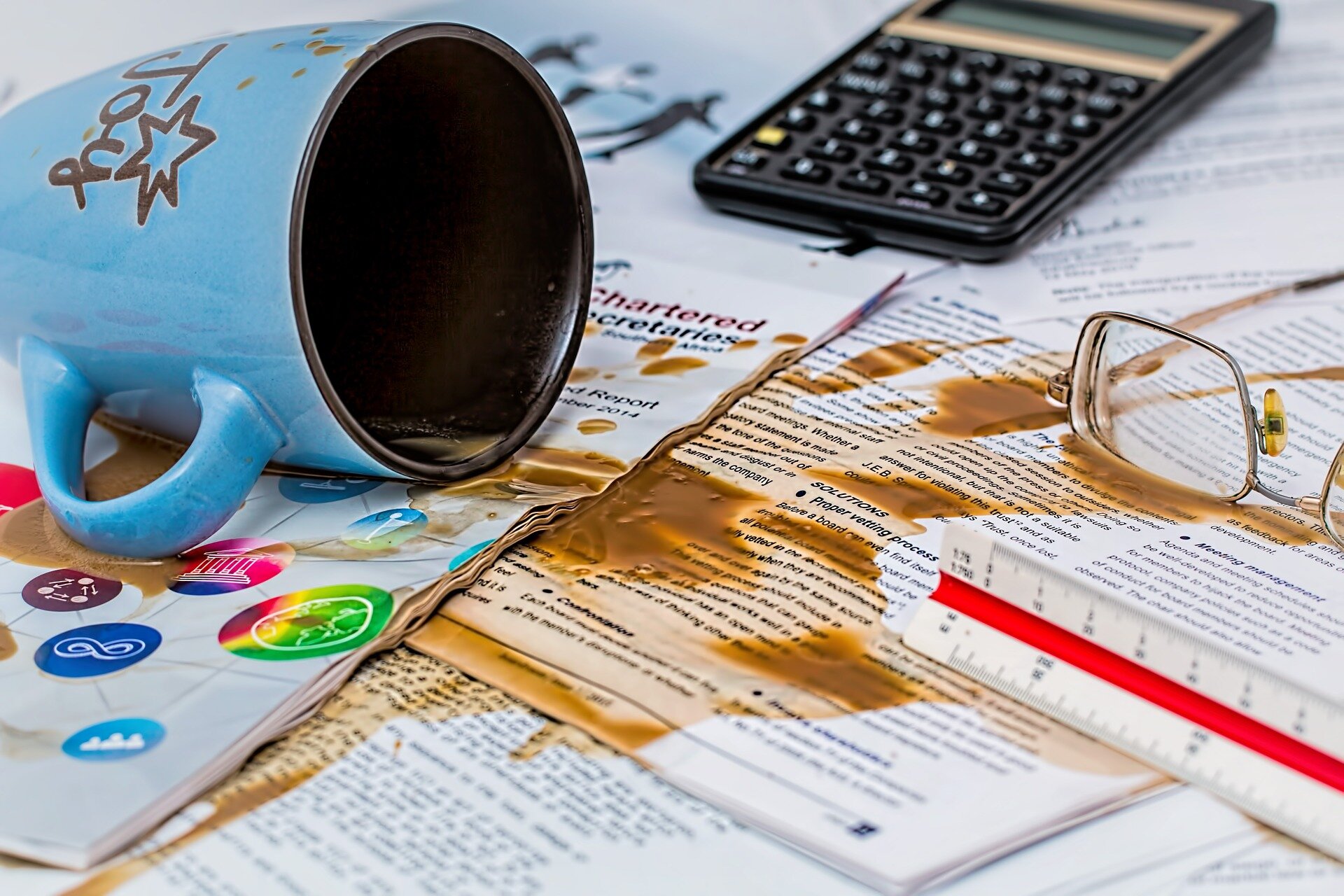Mistakes or Opportunities? Learning from Errors
By Cindy Nebel
Errors are a part of life. As fallible humans, we’re bound to make mistakes. In one of my classes this week, we discussed errors in terms of learning. How do we learn from our mistakes? In 2017, Janet Metcalfe wrote a thorough review of the literature on errors, including whether and how we learn from them, and if this differs for different populations (1).
Image from Pixabay
Behaviorism was a dominant theory in the early 1900s and according to the theory of behaviorism, errors represent a problem for learning. An error means that an incorrect association has been made and will need to be replaced with the correct association, making the learning process take longer. Possibly for this reason, the American school system (among others) tends to avoid errors during instruction. It seems ingrained in the culture that students want to avoid making mistakes in the classroom. And this is contrary to school systems in other cultures, such as Japan (2).
However, research in the laboratory has demonstrated that errors can be very beneficial for learning. Metcalfe reviewed several research studies which collectively show that so long as people make “educated” guesses, when their errors are corrected, they are very likely to recall that information later. However, this is crucially dependent on feedback. Individuals not only need to receive the correct answer, but they need to pay attention to it and process it. The amount of learning from errors increases if the individual processes not just the correct answer, but additional explanation or analysis. Learning from these errors is also more effective if the individual produces the error instead of being provided with incorrect information and an explanation for why it is incorrect.
Image from Pixabay
While errors can be beneficial for learning, true guesses are not terribly useful. As the confidence in an error increases, learning from the error also increases (called the hypercorrection effect). There is quite a bit of research to support the idea that participants have heightened attention or perhaps surprise when they believe an answer is correct and are told that they are wrong. That research includes behavioral laboratory research in addition to neuroscience research that shows activity in an area of the brain that is used when we have heightened attention.
There are a few exceptions to the hypercorrection effect. Individuals with amnesia obviously have a difficult time learning and have been shown to be able to learn some without errors instead. Older adults learn from errors, but they learn about equally from errors with low and high confidence. They seem to have the same amount of attention to errors made with different levels of confidence.
One possible explanation for why we learn from errors has to do with what cognitive psychologists call “reconsolidation”. Each time we bring something to mind, we create a new memory trace, allowing us to change the memory. So, when we retrieve an incorrect piece of information and are corrected, we are able to lay down a new trace to incorporate the new information.
Image from Pixabay
The consequences of this body of research is clear for classroom learning; students should be given the space needed to make mistakes and learn from them. We should encourage students to try and make errors so that those errors can be analyzed and corrected. But in order to do this, students have to feel safe in making those errors. How do we make students feel safe? By making assessments of learning low or no stakes.
When I discussed this research article with my students this week, they had many insightful thoughts. Many of them discussed the quality of feedback that is provided to students after making an error. If the feedback is punitive in nature, students are likely to have increased anxiety, inhibiting their learning. Instead, feedback should be constructive and students should be made aware of why they should process the feedback. You can read more about quality feedback here and here.
In addition, students talked about how we label errors. By calling them errors, students may feel embarrassed for making them. Perhaps we should talk about mistakes as “opportunities” to better encourage the learning that might come from them.
References:
(1) Metcalfe, J. (2017). Learning from errors. Annual review of psychology, 68, 465-489.
(2) Stevenson, H., & Stigler, J. W. (1994). Learning gap: Why our schools are failing and what we can learn from Japanese and Chinese educ. Simon and Schuster.





